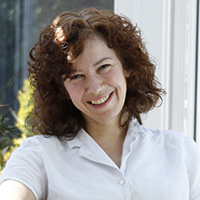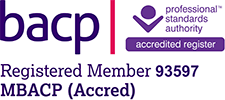Problem gambling counselling in Cheadle, near South Manchester and Stockport
What is problem gambling?
 Problem gambling occurs when an individual’s gambling has a negative
impact on their relationships,
their free time activities , their job as well as their mental health/self
esteem. Problem gambling can result in relationship problems (lying, being
secretive, relationship breakdown); problems at work (lying, losing your
job); financial problems (being in debt, losing money/savings); mental
health problems (low self
esteem, feeling out of control, magical thinking).
Problem gambling occurs when an individual’s gambling has a negative
impact on their relationships,
their free time activities , their job as well as their mental health/self
esteem. Problem gambling can result in relationship problems (lying, being
secretive, relationship breakdown); problems at work (lying, losing your
job); financial problems (being in debt, losing money/savings); mental
health problems (low self
esteem, feeling out of control, magical thinking).
Problem gambling is an addiction
and, like other forms of addiction, it is a distraction from feelings
of helplessness and powerlessness. Gambling is a coping strategy which
allows the gambler ,temporarily, to feel in control of their life/feelings.
Ironically – in the absence of a healthier way- the addictive and
compulsive gambling behaviour is an attempt to heal, to meet a need and
to feel alive.
When does problem gambling start?
Problem gambling often starts in the teenage years - slot machines, scratch cards, going to the bookies with
an older relative - then it progresses as the gambler gets older to roulette, casinos, online gambling as well as betting shops/bookies.
How can counselling help my gambling problem/addiction?
Counselling can help the gambler reconnect to, experience and manage in a healthy way their uncomfortable feelings
(of powerlessness, helplessness, lack of control). Counselling can also challenge the false beliefs that maintain the
gambling behavior as well as replacing these limiting beliefs with healthier, non destructive ones.
What are the limiting beliefs held by gamblers?
|
False beliefs
|
Reality
|
|
- Gambling is a distraction from real life. Gambling causes a
lot of stress in my
life/relationships. When I gamble I lie/am secretive. I need to
be honest with myself. Gambling is a way of dealing with negative
emotions.
|
- Gambling gives me a high.
|
- The risk taking of gambling holds my attention, which temporarily relieves the symptoms of my poor concentration/restlessness.
Ultimately gambling is self destructive and lowers my self esteem.
|
- If I don't gamble, I'll feel empty/bored.
|
|
- Money I've lost is owed to me.
|
- The money I've lost belongs to the bookies/casino. I can't beat roulette.
|
- Winning makes me feel special.
|
- This is selective memory - not seeing the whole picture. As the number of times I've lost outweighs how often I've won. To be real I can't separate winning from losing.
|
- Fantasising about spending the winnings is healthy.
|
- This is magical thinking. In reality I have 1 in a billion chance of winning the lottery.
Putting my energy into how I will spend the winnings is not real/unhealthy; it raises unreal unexpectations.
|
- I can control my own luck.
|
- Selective memory means that I don't remember the whole picture/reality.
Focusing on the times I have won is not reflective of reality- focusing on the proportion of times won/lost is real.
|
- Gambling helps me escape my problems.
|
- Gambling causes many problems for me and my relationships. Gambling is a compulsion. I feel out of control with gambling. It lowers my self esteem. Gambling is not my friend.
|
- Winning (money) will make me happy.
|
- Happiness/contentment/fulfillment in life comes from close relationships, a fulfilling job, good health, high self esteem and passion for hobbies. Money/gambling won't make me happy.
|
- The urge to gamble is overwhelming.
|
- I can wait and think between having the urge to gamble and actually gambling. This will give me time to realise I have a choice about gambling or not gambling. I am in control of my actions/feelings.
|
- I can lose money then carry on with my normal activities.
|
- My body tells me how anxious
I am- heart racing, body shaking, being forgetful, headaches.
Often I can't sleep. My body is telling me that gambling is a
big problem for me.
|
- I'd lose my gambling friends.
|
- These gamblers are not your friends. They are fellow addicts.
|
- I've lost some money but it's ok I'll rectify it tomorrow . It's my turn to win.
|
- Gambling will only get me in more debt. I need to be real to stop gambling. I need to be honest with myself and not lie to myself.
|
 Problem gambling occurs when an individual’s gambling has a negative
impact on their relationships,
their free time activities , their job as well as their mental health/self
esteem. Problem gambling can result in relationship problems (lying, being
secretive, relationship breakdown); problems at work (lying, losing your
job); financial problems (being in debt, losing money/savings); mental
health problems (low self
esteem, feeling out of control, magical thinking).
Problem gambling occurs when an individual’s gambling has a negative
impact on their relationships,
their free time activities , their job as well as their mental health/self
esteem. Problem gambling can result in relationship problems (lying, being
secretive, relationship breakdown); problems at work (lying, losing your
job); financial problems (being in debt, losing money/savings); mental
health problems (low self
esteem, feeling out of control, magical thinking). 

